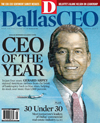The term is “pool-shot activism.” it has nothing to do with an enhanced vacation resort agenda or binge sunbathing during Dallas’ scorching summer months. Instead, think green—as in green felt—like a bank shot on a pool table.
A report out this year from the Washington, D.C.-based Public Affairs Council titled “Activists in the Boardroom: How Advocacy Groups Seek to Shape Corporate Behavior,” highlights this new tactic and trend in the ever-complicated relationship between Corporate America and political activists. The report concludes, “In ever-rising numbers, activists are seeking to achieve their goals by taking direct action against corporations, rather than by lobbying lawmakers or government regulatory agencies. While these kinds of campaigns are not new, activists are launching them much more often than they did in the past.” In other words, some non-government organizations are finding it more effective to skip the system and go right to the consumer and the marketplace.
The Council’s report highlights the recent media headlines concerning a group of tomato pickers from Immokalee, Fla. In 2001, after making no headway in securing a pay raise from the tomato growers who employed them, the Southwest Florida farmworkers decided to target a company that buys tomatoes from their growers—that’s where the “pool-shot” part comes in. The Coalition of Immokalee Workers launched the “Taco Bell Truth Tour,” which included boycotts and protests at Taco Bell stores around the country.
Taco Bell is owned by fast-food giant, Yum! Brands, which buys a lot of tomatoes every year and also owns locally based Pizza Hut. While, according to “Activists,” Taco Bell’s profits weren’t diminished by the pickers’ protests, the company took no delight in seeing its brand associated with allegations of labor exploitation. The corporation initially resisted involvement, claiming it was “somebody else’s labor dispute.” But, in 2005, Yum! agreed to fund a penny-per-pound pay increase directly to the pickers.
In another case, the activist group Forest Ethics reportedly skipped the loggers and went right after a company it knew used plenty of paper for its catalogs, Victoria’s Secret. The nationwide protest effort brought activists to the doorsteps of Victoria’s Secret stores all over the country and launched an online campaign featuring an “angel” with a chainsaw titled “Victoria’s Dirty Secret.”
And, instead of going after mining and logging operations directly, a group called the Rainforest Action Network (RAN) reportedly targeted Citigroup and other banks for financing projects it said had harmful effects on the environment. RAN went so far as to take out “Wanted” poster ads in bank executives’ hometown newspapers accusing them of “reckless investment.” Within two years, RAN and Citigroup signed a very public agreement whereby Citigroup agreed to review the environmental practices and stewardship of potential customers before providing financing.
The Public Affairs Council’s report concludes that smart companies are doing several things to prepare. First, executives are thinking ahead to identify vulnerabilities and anticipate the attack before it happens. If you’re not a high-stakes target, you have to consider who you’re doing business with that is and how that could affect you. The formula works even better on the front-end of key corporate decisions—knowing the potential for danger before going down that road.
Others are finding activist groups they can partner with in hopes of finding middle ground and avoiding conflict down the road. Many non-government organizations can act as expert consultants in guiding a corporation, for example, to environmentally friendly practices. Plus, it’s a disarming and smart first line of defense to say your company is already working with non-profit X to address its issues.
Finally, many are investing in philanthropic efforts to build up their “good works” account in the bank of public trust for the inevitable rainy day. Consumers expect the companies they do business with to give back to the community—it develops loyalty, and more importantly, it’s the right thing to do. So, when and if allegations come banking off the long end of the table, a company’s brand trust and reputation are in better shape to withstand the shot.
Crayton Webb is manager of government relations for Mary Kay Inc. Webb serves on the board of directors for the Dallas Convention & Visitors Bureau, Dallas Area Habitat for Humanity, the Greater Dallas Planning Council and the citywide fitness initiative, “Get A Move On.” Previously, he was chief of staff for Dallas Mayor Laura Miller and an investigative television news reporter for CBS 11.





